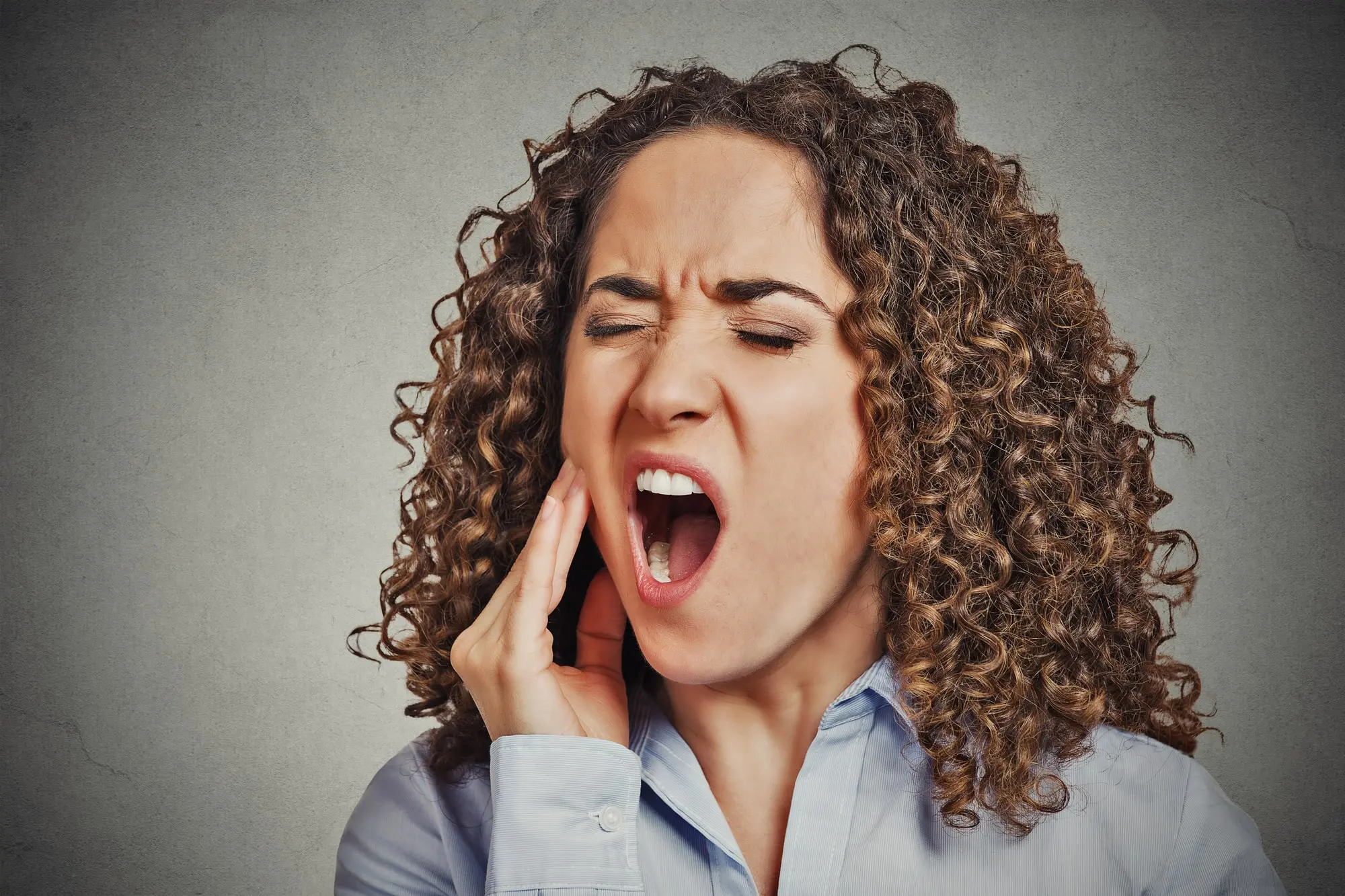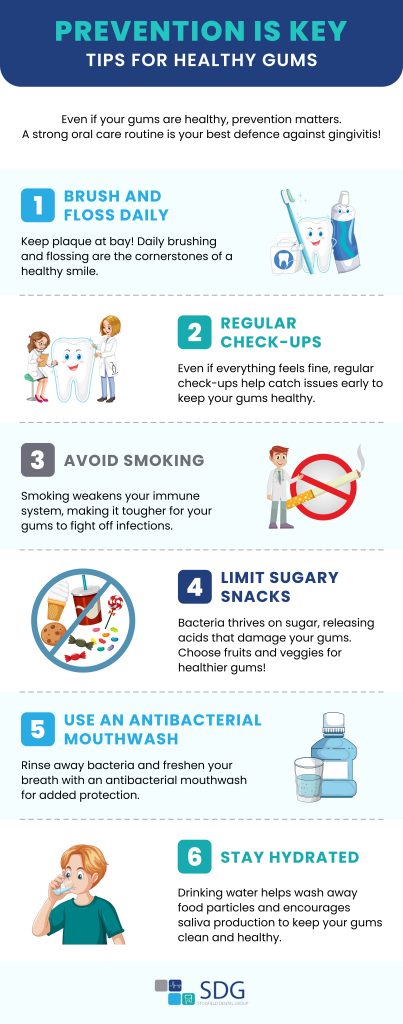How To Cure Gum Disease Without A Dentist

Gum disease—these two words are a nightmare when it comes to dental health and it can affect anyone at any age.
Fortunately, you can manage and even reverse gum disease (gingivitis) if you’re in its early stages without having to visit the dentist right away. Of course, regular dental check-ups are important and it is always advised to get professional help—but there are several things you can do at home to keep your gums in check and avoid further complications.
What is Gum Disease?
Gum disease, also known as periodontal disease is caused by the build-up of bacteria and plaque in the mouth. This can be due to poor brushing habits, smoking, low-nutrient diet, chronic conditions like diabetes and genetic factors. If plaque is not removed, it can irritate the gums and lead to inflammation. There are two stages to gum disease:
- Gingivitis – the early stage where you won’t notice much discomfort, except for gums bleeding easily when you brush. This is the reversible stage where focused care on oral health and hygiene can make a change for the better.
- Periodontitis – the more severe stage that can result in permanent damage, where the gum tissues separate from the teeth and will need extractions.
We’ll focus on gingivitis, as this is when at home-care can still reverse the damage.
Recognising Early Symptoms
The key to preventing gum disease from progressing is recognising the early signs. Here’s what to look for:
- Red, swollen or tender gums
- Bleeding gums, especially when brushing or flossing
- Persistent bad breath
- Receding gums
- Loose teeth
- Deep pockets or spaces in the gums
- Pain when chewing
- Change in bite
- Pus between teeth and gums
At-Home Cures for Gum Disease
If you’ve spotted the early signs, don’t worry—there are ways to tackle gum disease at home. Here’s what you can do to manage and potentially cure gingivitis.
1. Improve Your Oral Hygiene Routine
When plaque and bacteria are the culprits, the best solution is to keep your mouth as clean as possible.
- Brush twice a day: Make sure you brush for two minutes with fluoride toothpaste. Use a soft-bristled toothbrush and clean gently to avoid irritating your gums further.
- Floss daily: Plaque and food particles hide between your teeth where your toothbrush can’t reach. Flossing is essential to remove these and prevent plaque build-up. Regular floss is alright but a water flosser could reach deeper for better results when it comes to gum disease.
- Use an antibacterial mouthwash: For extra protection, use an antibacterial mouthwash to rinse away bacteria and freshen your breath.
2. Try Oil Pulling
Oil pulling is a traditional treatment that is thought to lessen oral bacteria. Swishing coconut oil around your mouth for 10-20 minutes before spitting it out is thought to help clean out bacteria that can lead to gum disease.
3. Salt Water Rinse
A salt water rinse is a simple yet effective way to reduce inflammation. It can soothe irritated gums and kill bacteria.
- Dissolve half a teaspoon of salt in a glass of warm water.
- Swish it around your mouth for 30 seconds, then spit it out.
- Repeat twice a day for the best results.
4. Incorporate Tea Tree Oil or Aloe Vera
Natural remedies like tea tree oil and aloe vera have anti-inflammatory and antibacterial properties. Adding a drop of tea tree oil to your toothpaste or using aloe vera gel on your gums may help reduce symptoms.
5. Stay Hydrated and Eat a Balanced Diet
A healthy diet plays an essential role in gum health. Foods rich in vitamins and minerals (like Vitamin C and calcium) help maintain strong gums. Also, staying hydrated encourages saliva production, which naturally cleanses the mouth.

When to See a Dentist
While it’s possible to reverse early gum disease at home, there are times when seeing a dentist is necessary. You should make an appointment if:
- Your gums continue to bleed after a week of improved oral hygiene.
- You experience persistent bad breath or a bad taste in your mouth.
- You notice your gums are receding or your teeth feel loose.
- You have painful or swollen gums that don’t improve.
In these cases, gum disease may have progressed beyond gingivitis into periodontitis, which requires professional treatment to avoid permanent damage.
Seek immediate help from SDG Dental, where our professionals will gently guide you through treatments to safeguard your smile to the best of our ability. Our focused assistance will help address any underlying dental issues as well. Need emergency care for your gums? We are open on weekends as well.
Taking care of your gums not only keeps your smile bright but also supports your overall health—so make your gum care a priority!



